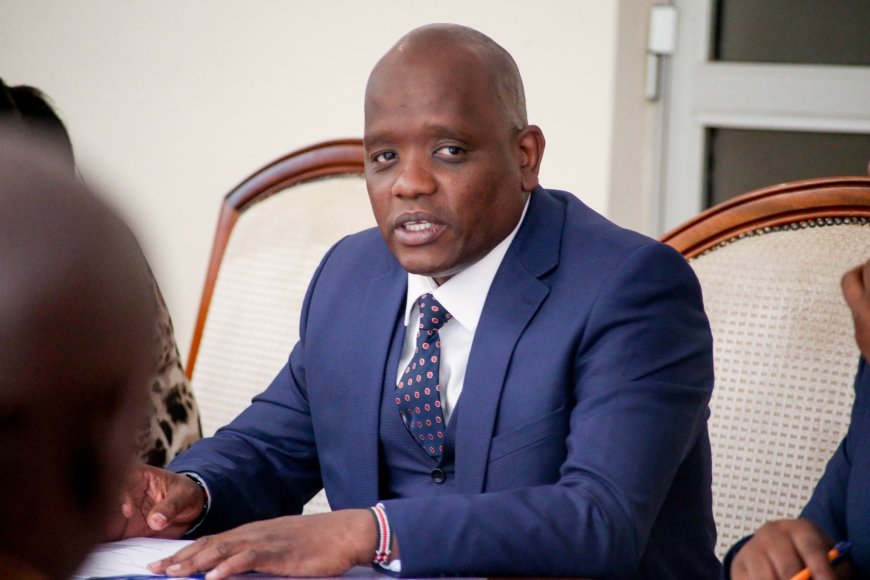Dennis Itumbi Condemns Arrest Of 'Blood Parliament' Filmmakers
Itumbi criticized the arrest of four local filmmakers, saying it was unwarranted since their only act was creating a film.

Dennis Itumbi, Digital Strategist and Head of Creative Economy at the Office of President William Ruto, condemned the arrest of four Kenyan filmmakers linked to the 'Blood Parliament' documentary by the British Broadcasting Corporation (BBC).
The four, Nicholas Gichuki, Brian Adagala, MarkDenver Karubiu, and Chris Wamae were released from Pangani and Muthaiga police stations on Saturday, May 3, on free bond.
In a short statement on Saturday morning, Itumbi criticized the arrest of four local filmmakers, saying it was unwarranted since their only act was creating a film.
The State House official suggested there’s a different narrative behind the violence and political coordination that led to the storming of Bunge Towers and the break-in at the Mausoleum’s armory.

Four Kenyan filmmakers allegedly linked to BBC's Blood Parliament documentary Nicholas Gichuki Wambugu, MarkDenver Karubiu, Brian Adagala and Chris Wamae after their release on Saturday, May 3, 2025. (From L-R). /AFRICA UNCENSORED
He condemned the arrests and urged filmmakers to produce a new project that would reveal the real masterminds behind the June 25, 2024, parliament invasion.
"Arresting BBC journalists merely for making a film is unnecessary. There is an alternative story on the violence and political planning that unleashed the storming of the bunge and invading the armoury at the Mosoleum," Itumbi commented.
"Make an alternative documentary, tell the other story. BBC told their story. Let them be. Free the journalists. In my view."
The four were arrested at their Karen-based studio on the night of Friday, May 2, and taken to different police stations. Soon after the arrests, police seized their gear and hard drives. Human rights advocate Hussein Khalid stated the group was being held at Pangani and Muthaiga Police Stations.
Though later released on free bond, they didn’t get their equipment back. Authorities had booked them on allegations of spreading false information, with reports indicating that they were made to give statements without legal representation.
Confirming their release, LSK lawyer Ian Mutiso said he had been in contact with the police and actively followed up to ensure the four were freed. He seemingly intimated that the arrests were being conducted by senior figures at the Directorate of Criminal Investigations (DCI).
"When I spoke to the DCIO for Pangani, he gave me some very concerning information stating that this matter was not under his purview. He informed me that this was being conducted from DCI headquarters, and this is something I will follow up on," Mutiso said.







